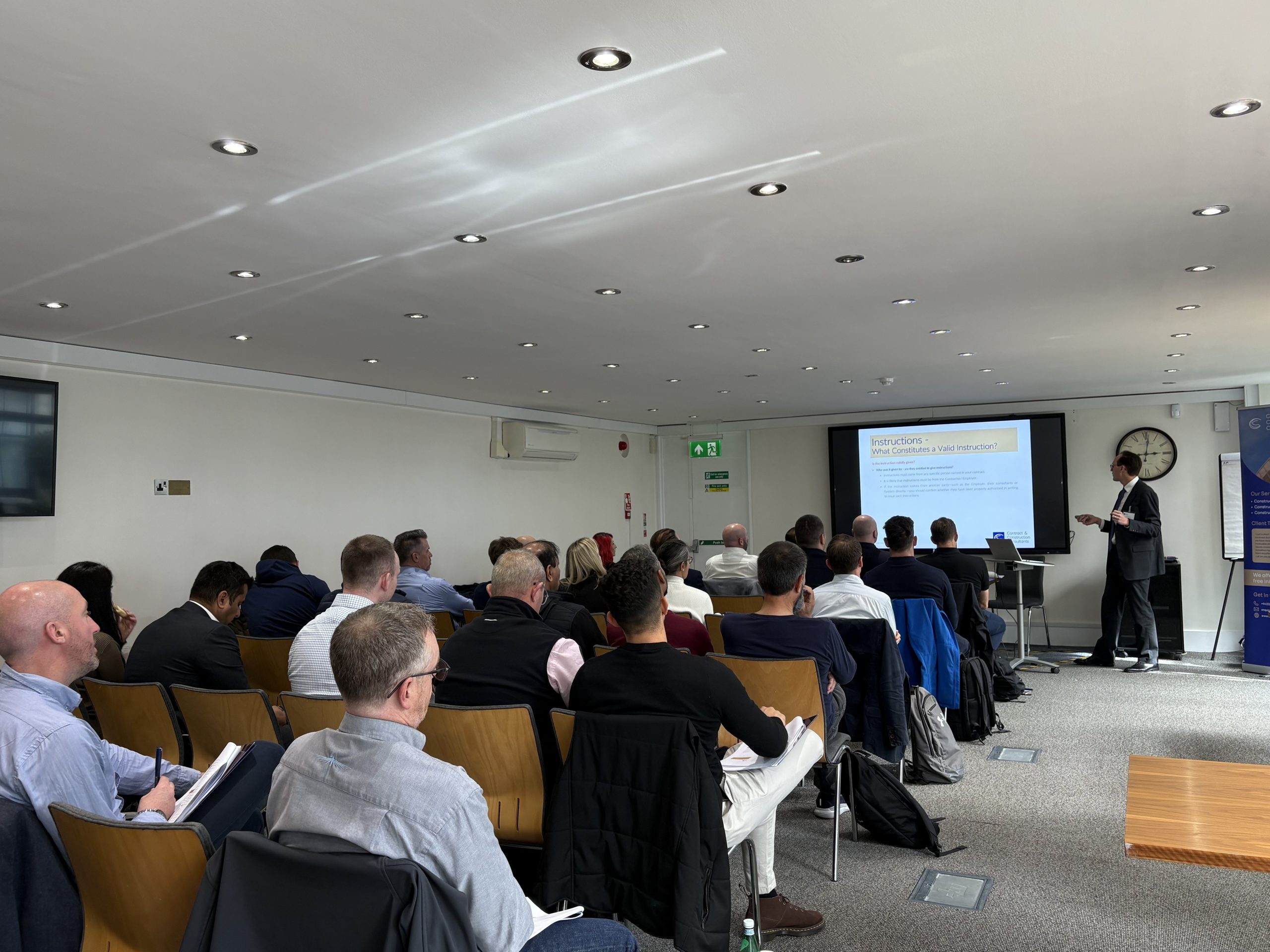The High Court’s decision in Jaevee Homes Ltd v Steve Fincham (t/a Fincham Demolition) [2025] EWHC 942 (TCC) serves as a sharp reminder that informal communications, such as WhatsApp messages and emails, can form legally binding construction contracts. In a sector where time is often short and negotiations can move quickly, the case provides timely guidance on how courts interpret intent and agreement in digital exchanges that are used with ever increasing frequency.
Contractors, subcontractors, and developers should all be aware of the legal implications of how they communicate during early-stage discussions.
Background: The informal start that sparked a formal dispute
In early 2023, Jaevee Homes (the Developer) approached Fincham Demolition to carry out demolition works at a Norwich site. While a formal sub-contract was issued later, it was never signed. Instead, communications unfolded over WhatsApp and email. A particular message exchange on 17 May 2023 became pivotal. In it, Fincham asked: “Ben Are we saying it’s my job mate so I can start getting organised mate,” to which Jaevee replied: “Yes.” There was then some further messages referring to payment:
The Developer messaged: “Monthly applications” to which the Contractor replied “Are you saying every 28 or 30 days from invoice that’s a yes not on draw downs then good d) call you at 8.30 mate Thanks mate appreciated Ben”.
The Contractor later referred a dispute to adjudication for payment of four invoices it had submitted in the total sum of £195,857.50, of which £80,000 had been paid. It made this claim on a ‘smash and grab’ basis arguing that it was entitled to the full amount invoiced as the Developer had not issued any payment or pay less notices. The adjudication was decided largely in favour of the Contractor. Enforcement proceedings followed, which were also decided in favour of the Contractor. Subsequently, the Developer issued a Part 8 Claim in court seeking the following declarations:-
- the contract was as set out in the email dated 26 May;
- alternatively, the contract was formed by the emails and WhatsApp messages (including the right to submit invoices on a monthly basis); and
- whatever the agreed terms, the invoices were not valid applications for payment or payment notices under the Construction Act 1996.
The original casual exchange between the parties became central to the court’s assessment of whether a binding agreement had been formed, and if so on what terms.
Informal messages can create binding contracts
The court found that despite the lack of a signed document, or detailed discussion of various terms, the parties had reached agreement on the key terms of the works, including scope, price, and start date, via their digital communications. The judge held that this was sufficient to establish a construction contract. A simple affirmative message in response to a question about job confirmation, was capable of amounting to contractual acceptance.
It was not necessary for there to be agreement about any precise start date, the duration of the works or payment terms which were not deemed to be essential elements of a construction contract.
This reinforces the need for caution when using messaging apps. A contractor who says “yes” to an offer, could end up bound by the same obligations as if they had signed a formal contract.
Payment provisions will be implied where absent
Although the WhatsApp messages made reference to monthly invoicing, they lacked specific details about how or when those payments were to be made. That, however, did not undermine the court’s decision in finding that there was a binding contract. Instead, the court filled these gaps by applying the Scheme for Construction Contracts (England and Wales) Regulations 1998 and in the absence of express terms, the statutory payment regime stepped in to provide the necessary framework.
This serves as a reminder that where parties do not clearly set out payment mechanisms, the default statutory rules will apply, potentially in ways that are commercially unfavourable to one or both sides.
Invoices may constitute valid payment notices
Fincham issued four invoices for the works. The court found that three of these met the requirements of valid payment notices under the Housing Grants, Construction and Regeneration Act 1996. The absence of a timely pay less notice from Jaevee meant that the amounts stated became due in full.
This confirms that even where invoices are issued through informal channels or without a formal contract document in place, they may still trigger payment obligations, provided they meet the statutory criteria.
Final thoughts
In an era where WhatsApp and other messaging platforms are routinely used for project coordination, the risk of inadvertently forming contracts is significant. Courts are increasingly focused on the substance of communications rather than their form.
Parties must therefore exercise significant caution when discussing matters of contractual significance using informal methods of communication. Digital communications carry real legal weight. This case underscores the importance of documenting agreements properly, maintaining clarity in communication, and avoiding the assumption that unsigned means unenforceable. Courts will continue to look at what was said, when, and with what intent, not just the format in which it was said.
How CCC can help
We assist contractors, subcontractors, and developers in reviewing early project communications and ensuring clarity around contract formation. Our team provides advice on payment mechanisms, notices, and dispute resolution procedures to ensure you are protected, whether your agreements are formed formally or informally. We also carry out contract reviews at the early negotiation stage to help you identify risks, clarify terms, and strengthen your position before work begins. We can help you assess your legal exposure and take proactive steps to safeguard your position.



